Similar questions to this have been asked but not exactly like this. There is one that is very close, but that solution is not working for me.
I have a function which returns comma separated values into a cell. I would like to pass the elements in that cell as criteria to a SUMIFS function using an approach like this one.
My attempt is pictured below:
I believe that this is somehow tied to the way that the function is understanding what is in cell G8. It looks like it is adding some extra quotes. If I highlight G8 in the formula bar and press F9, I get:
There are extra quotes on each side of each criteria.
I am open to a custom VBA function solution, but I would prefer something which can be built as a worksheet function. The criteria are returned from a custom VBA function that pulls elements out of a list box and does some regex work to remove extra commas. The number of elements that can be selected is variable so I would like to avoid having to split the criteria into more than one cell. Thanks.

